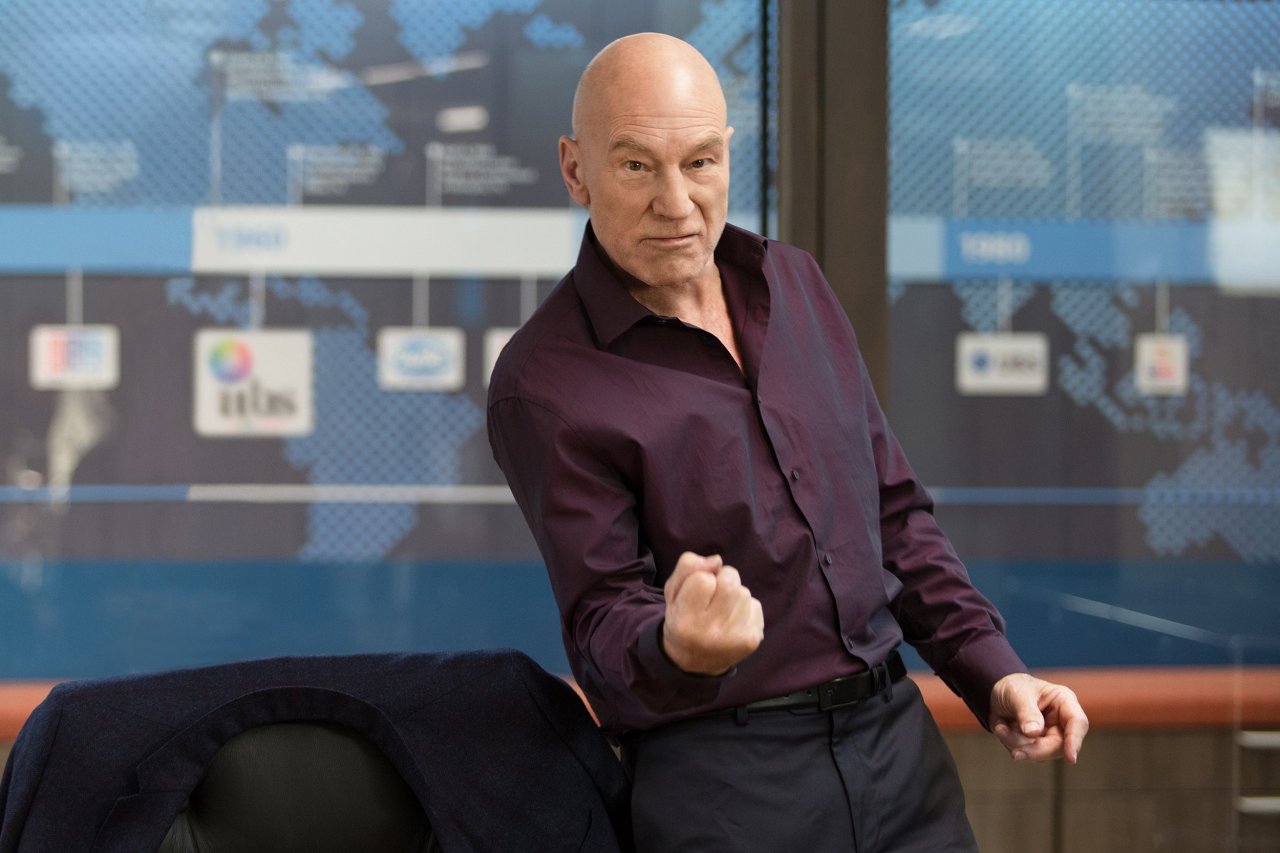
One evening, as writer Jonathan Ames (of now-defunct HBO comedy series Bored to Death) watched CNN, a thought occurred to him: Patrick Stewart would look fascinating and striking behind one of these anchor desks. Earlier in the year, Seth MacFarlane had approached Ames about creating a show together, and MacFarlane had immediately suggested getting Stewart on board. (Yes, that Patrick Stewart—of Star Trek and stage-acting fame.) But it wasn't until Ames pegged the actor for a network news anchor that the show's premise started to materialize.
And thus Walter Blunt, star of the new Starz show Blunt Talk, was born. Blunt—a pseudonym Stewart often uses, taken from one of his first roles with the Royal Shakespeare Company—is a fast-talking, hard-drinking British network news anchor with a penchant for fucking up. Within the show's first 10 minutes, he's stoned out of his mind and reciting Hamlet on the roof of a police cruiser, right after being caught "just talking" with a prostitute.
Blunt Talk may be a rare run for Stewart at a television comedy, but he insists it's not too distant from his many dramatic roles onstage, where he's performed works by the likes of Harold Pinter and Samuel Beckett. "Some of the best comedy comes out of necessity," he tells Newsweek. "I have found, and I'm sure all comic actors know, that the more serious you get, the funnier [a situation] might become."
Why does Walter Blunt want to establish himself as an anchor in the United States, as opposed to the U.K.?
Well, there is a backstory with Walter Blunt.... I asked [Ames] how he would feel if I were to write up a really detailed history: where he came from, who he was, his family, his education and so forth. And of course, I found myself using aspects of my own life. You know, I never expected to become a well-known actor in American show business! That was entirely an accident. I got the job on Star Trek because I was staying with a friend, an English professor at UCLA, who asked me if I would help him out one night…on campus by reading some extracts to illustrate a lecture he was giving. I did, and signed up for a course of public lectures with a man called Robert Justman, who was one of the producers of Star Trek: The Next Generation. And Robert [said] at some point during this scholarly, academic evening, "We found the captain." I find myself six months later in the leading role [Jean-Luc Picard] of a U.S.-syndicated science fiction show, never on my game plan at all.
I was kind of paralleling my own life, where it was not Walter's ambition to be an American media star, but it was something that happened to him, and having found that it happened to him, he then became fully engaged with American life.
Who are the news anchors you remember?
Well, it's hard for me to answer that question because I didn't own a television set until I was 25. And when I was a child, we didn't have a television set, we had a radio. Radio was the great influence in my life, [as were] some of the great BBC reporters, like Alvar Lidell and Richard Dimbleby. I loved listening to BBC News, and one thing has always impressed me: Back in the '40s and even into the '50s, BBC Radio newsreaders would read the evening news wearing tuxedos. Oh, yes! You can Google photos of them. BBC Radio news anchors and broadcasters dressed in black tie and tuxedos.
About the writer
Paula Mejia is a reporter and culture writer. Her work has appeared in The Guardian, Rolling Stone, The A.V. Club, Pitchfork, ... Read more














